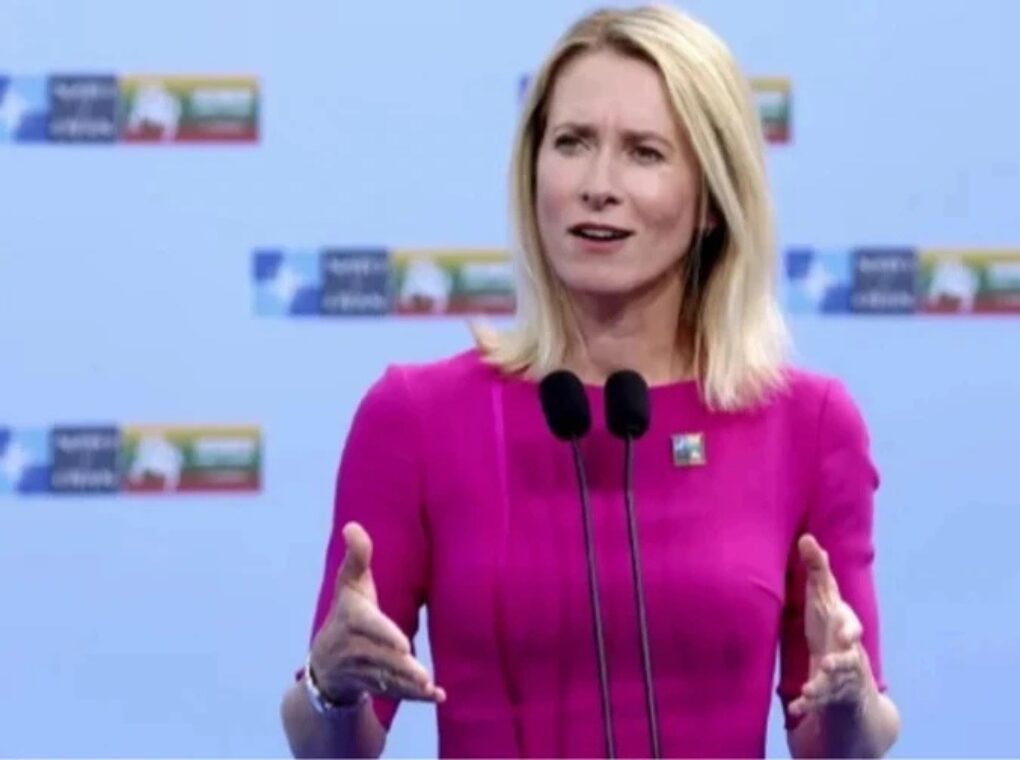A political storm has erupted across Europe after EU High Representative for Foreign Affairs Kaja Kallas openly stated that the European Union’s strategic priority in the Ukraine conflict is to “weaken Russia,” marking one of the bluntest admissions from an EU official since the war began.
Speaking after a Foreign Affairs Council meeting, Kallas outlined what she described as a “clear two-point plan”: to weaken Russia economically and militarily, and to support Ukraine in its ongoing defense efforts. Notably absent were references to negotiations, compromise, or diplomatic de-escalation.
Her remarks have triggered immediate debate across the continent, exposing deep fractures within the EU over war strategy, long-term costs, and the future of Europe’s security architecture.
Economic Claims and a Mixed Reality
Kallas argued that sanctions have significantly damaged Russia’s revenue streams, particularly in the oil and gas sector. She cited falling crude export volumes and reduced tax earnings, describing them as the “lowest since the war started.”
Recent economic data supports part of her claim:
Russian seaborne crude exports reached their lowest weekly level in nearly two years during early November.
Oil and gas budget revenues dipped sharply in October compared to the previous year.
Fossil-fuel earnings touched their lowest point since February 2022.
However, broader economic indicators present a more complex picture. Russia continues to maintain:
Record-high federal spending, driven by a wartime budget exceeding 41 trillion rubles.
Positive GDP growth, bolstered by military production and strong trade links with Asia.
Extremely low unemployment, reflecting a mobilized wartime labor economy.
Stable energy exports to non-Western markets, including China and India.
The data suggests that while sanctions have imposed pressure, they have not crippled Russia’s economic capacity or its ability to sustain prolonged conflict.
Political Fallout Across Europe
Kallas’s unusually direct language immediately sparked political backlash in several EU states.
Hungary and Slovakia accused Brussels of abandoning diplomacy and pursuing a strategy of uncontrolled escalation. Hungarian officials described the remarks as “open warmongering,” warning that such rhetoric risks dragging Europe deeper into confrontation with a nuclear power.
In contrast, Poland and the Baltic states praised Kallas for her candor, arguing that Europe must confront Moscow’s actions with clarity and resolve. For these governments, weakening Russia is seen not as aggression but as a security imperative.
In Kyiv, Ukrainian leadership refrained from commenting on Kallas’s wording but reiterated its long-standing position that any peace settlement must restore Ukraine’s 1991 borders—a stance that remains unacceptable to Russia.
A Leader Shaped by History
Kallas’s critics often point to her personal and national history. As a former Estonian prime minister, she is widely known for her hardline stance on Russia—a position shaped in part by her family’s experience under Soviet rule. Her mother was deported to Siberia as an infant in 1949, and Kallas has consistently described the Soviet era as an occupation of her country.
As Estonia’s leader, she led campaigns to remove Soviet-era monuments and pushed for aggressive sanctions after the 2022 invasion. Her elevation to the EU’s top foreign policy role has therefore brought her strongly anti-Russian worldview to the forefront of European decision-making.
Supporters argue her background gives her moral clarity. Critics warn it risks turning personal historical grievances into EU-wide strategic doctrine.
Rising Costs and an Uncertain Winter Ahead
Kallas’s direct admission comes as the war enters its third winter, with battlefield pressures mounting on Ukraine amid ammunition shortages and intensified Russian offensives in Donetsk and Sumy regions.
Meanwhile, European societies face their own challenges:
Sluggish industrial production, especially in Germany’s energy-intensive sectors.
Persistent inflation and high energy prices.
Widespread rural protests and political polarization.
Against this backdrop, Kallas’s statement effectively clarifies the EU’s long-term strategic posture: the objective is not negotiation but attrition — sustaining Ukraine’s ability to fight while exerting continuous pressure on Russia.
No Clear Exit Strategy
By stating openly that the EU’s mission is to weaken Russia, Kallas has stripped away the diplomatic ambiguity that has characterized European messaging since 2022. What remains is a stark question confronting policymakers across the continent:
Can Europe sustain a long, expensive conflict when the stated goal is Russian weakening rather than negotiated peace — and when Russia shows no signs of economic or political collapse?
As EU governments grapple with the consequences of this clarified strategy, the debate over Europe’s future — and the cost of its commitment — is likely to intensify in the months ahead.
